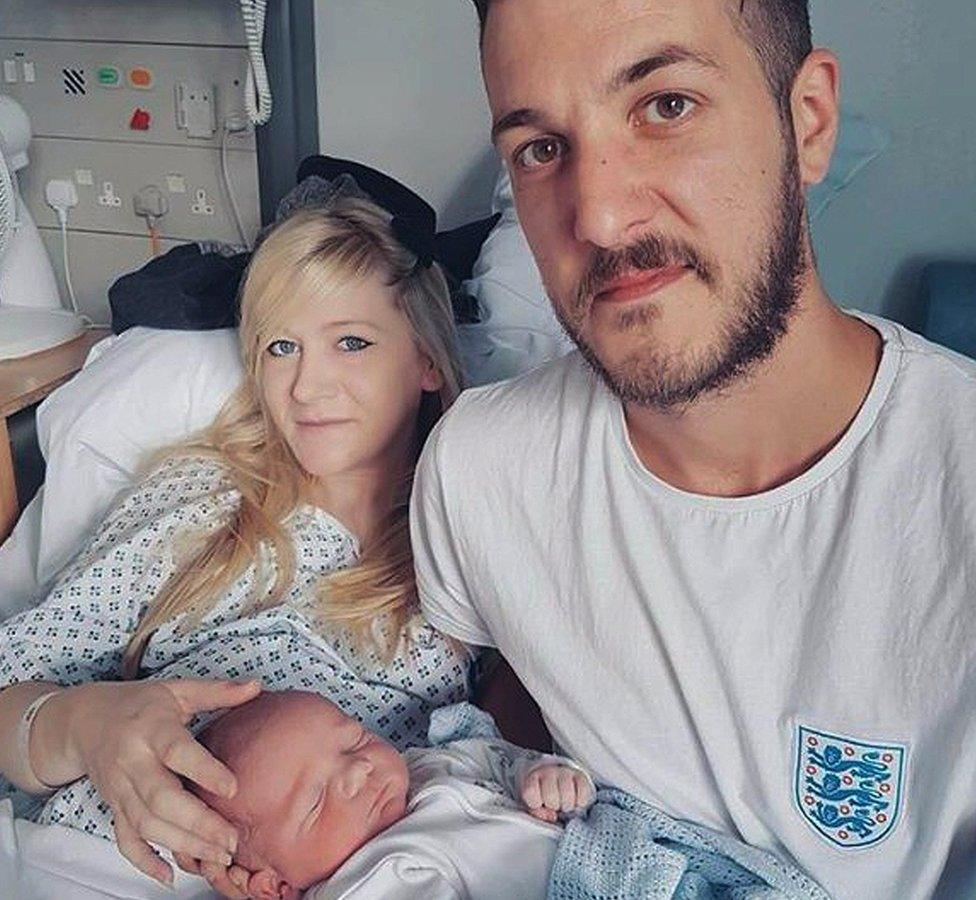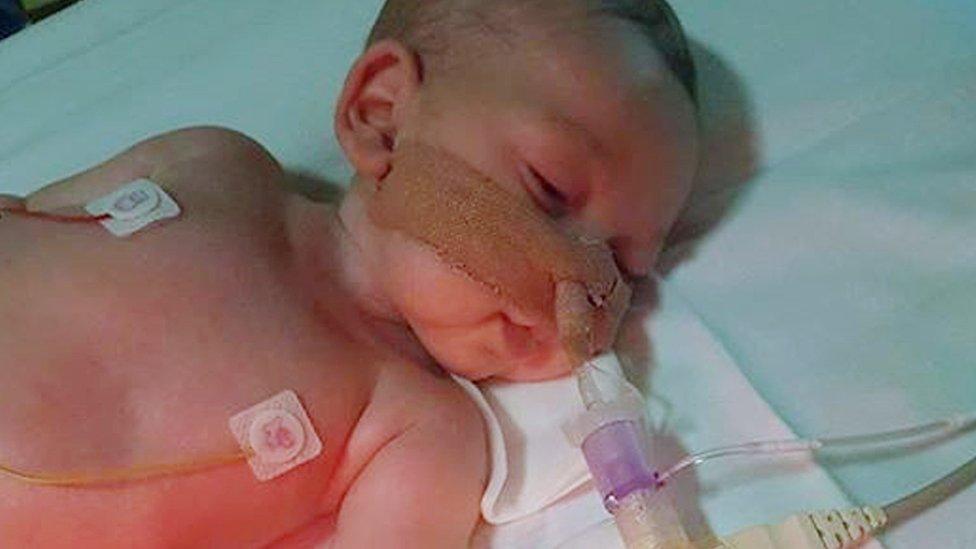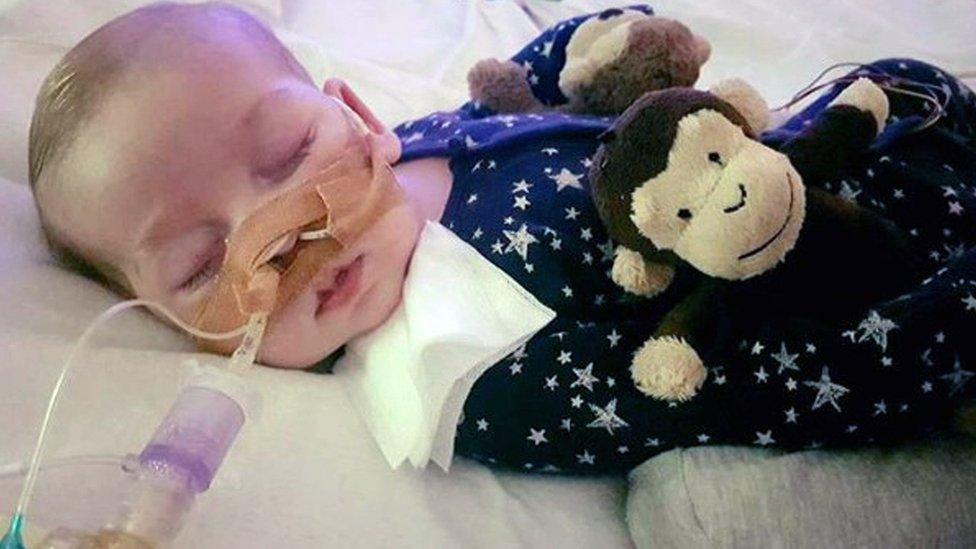Charlie Gard: US doctor says therapy would be uncharted territory
- Published

Charlie's rare disease has left him unable to cry and made him deaf, the High Court heard
The doctor who would give experimental treatment to a baby who has a rare genetic condition has admitted the case was "uncharted territory".
The American, who cannot be identified, said the therapy for Charlie Gard would be "treatment but not a cure".
A decision whether to turn off his life support machines is being considered by the High Court.
Connie Yates and Chris Gard want to take their son who has progressive muscle weakness to the US.
A crowdfunding campaign for the trip is now less than £60,000 short of its £1.3m target.
The judge is analysing medical evidence at a hearing in the Family Division before deciding what option is in Charlie's best interests.
The neurologist who would oversee the treatment told the court that while Charlie was in the "terminal stage" of his illness, treating him would be compassionate.
'Have our chance'
He said the therapy, which would be tried for six months, would provide a "small chance" of a meaningful improvement in Charlie's brain function.
"[Charlie] may be able to interact. To smile. To look at objects," he said.
Sophia Roper, representing Charlie's parents, also told the court there was "no evidence that he is on a regular basis in pain".

Connie Yates and Chris Gard with their son Charlie, who was born healthy in August last year.
Doctors at Great Ormond Street Hospital said the baby receives 24-hour care and should be allowed to die with dignity.
But the couple, who live in London, believe seven-month-old Charlie may have a chance of surviving if he receives treatment abroad.
"We just want to have our chance. It would never be a cure but it could help him live. If it saves him, amazing," Miss Yates said.
"I want to save others. Even if Charlie doesn't make it through this, I don't ever want another mum and their child to go through this."
Though born healthy in August, Charlie began to lose weight and strength by the time he was eight weeks old.
He was admitted to Great Ormond Street in October after developing aspiration pneumonia and was diagnosed with mitochondrial depletion syndrome.
Last month, his parents told the BBC's Victoria Derbyshire programme they would continue to fight for their child's survival.
They said: "He can move his mouth, he can move his hands. He can't open them fully, but he can still open his eyes and see us, in response to us."

Specialists at Great Ormond Street say there is no accepted cure for Charlie's rare disease
An online campaign raised an initial £1.2m, but an extra £100,000 is now needed to help pay fees on the GoFundMe website and extend Charlie's stay in America.
While it is free to host a campaign on GoFundMe.com, fees are deducted from each donation.
In the UK 5% of each donation goes towards supporting GoFundMe, while 2.68% is charged for processing fees plus VAT.
Those paying towards UK-based campaigns from outside the European Economic Area can expect up to 9.48% of their donation to go towards these fees, the website says.
'Exhausted' options
Charlie is thought to be just one of 16 children in the world to have mitochondrial depletion syndrome.
Earlier this month, a spokesperson for Great Ormond Street Hospital for Children NHS Foundation Trust said it had "exhausted" all proven treatment options.
"We cannot imagine how hugely distressing this is for his family," they added.
"We continue to support them in every way we can, while advocating, what we believe, is best for Charlie."
- Published2 April 2017

- Published7 March 2017

- Published3 March 2017
